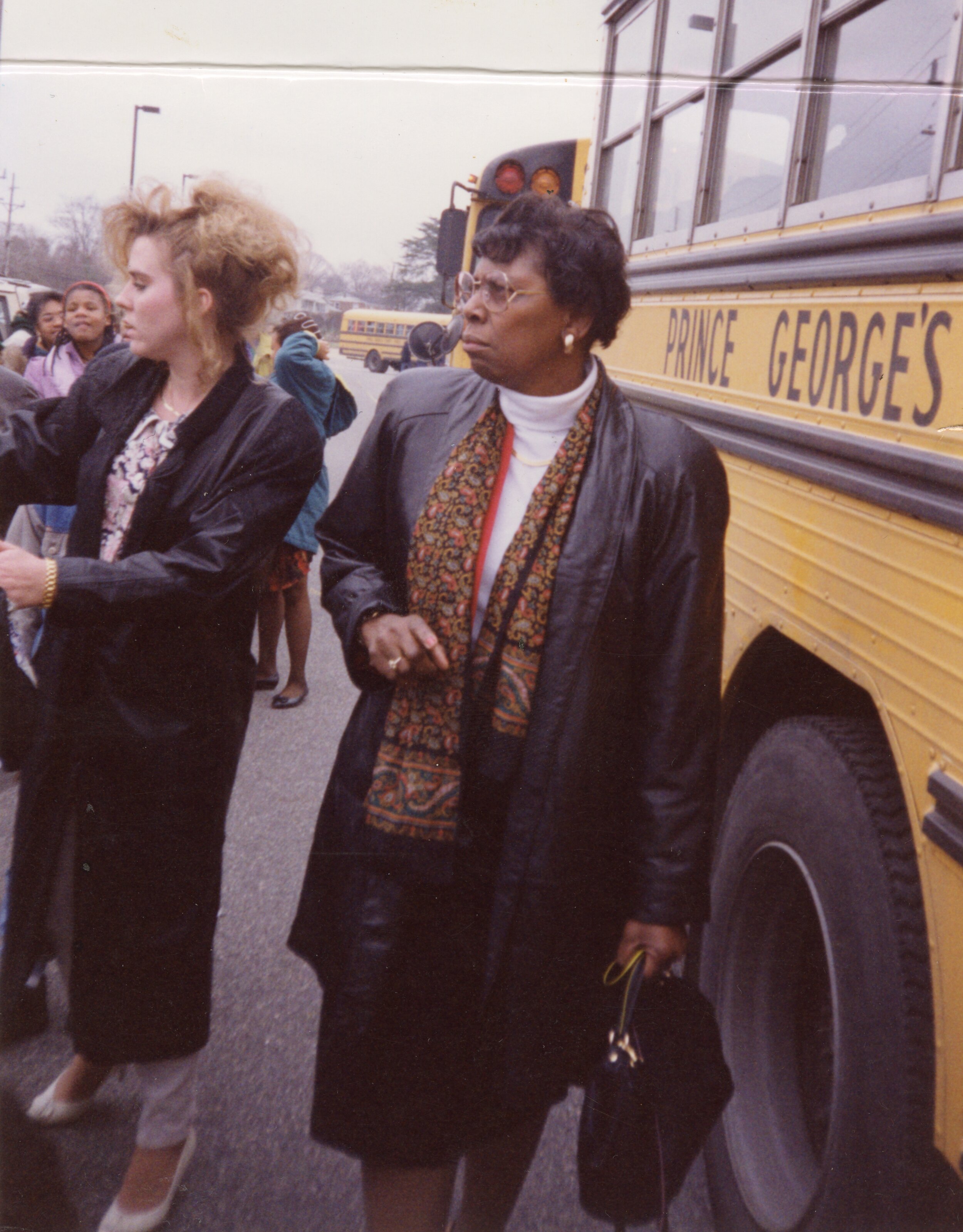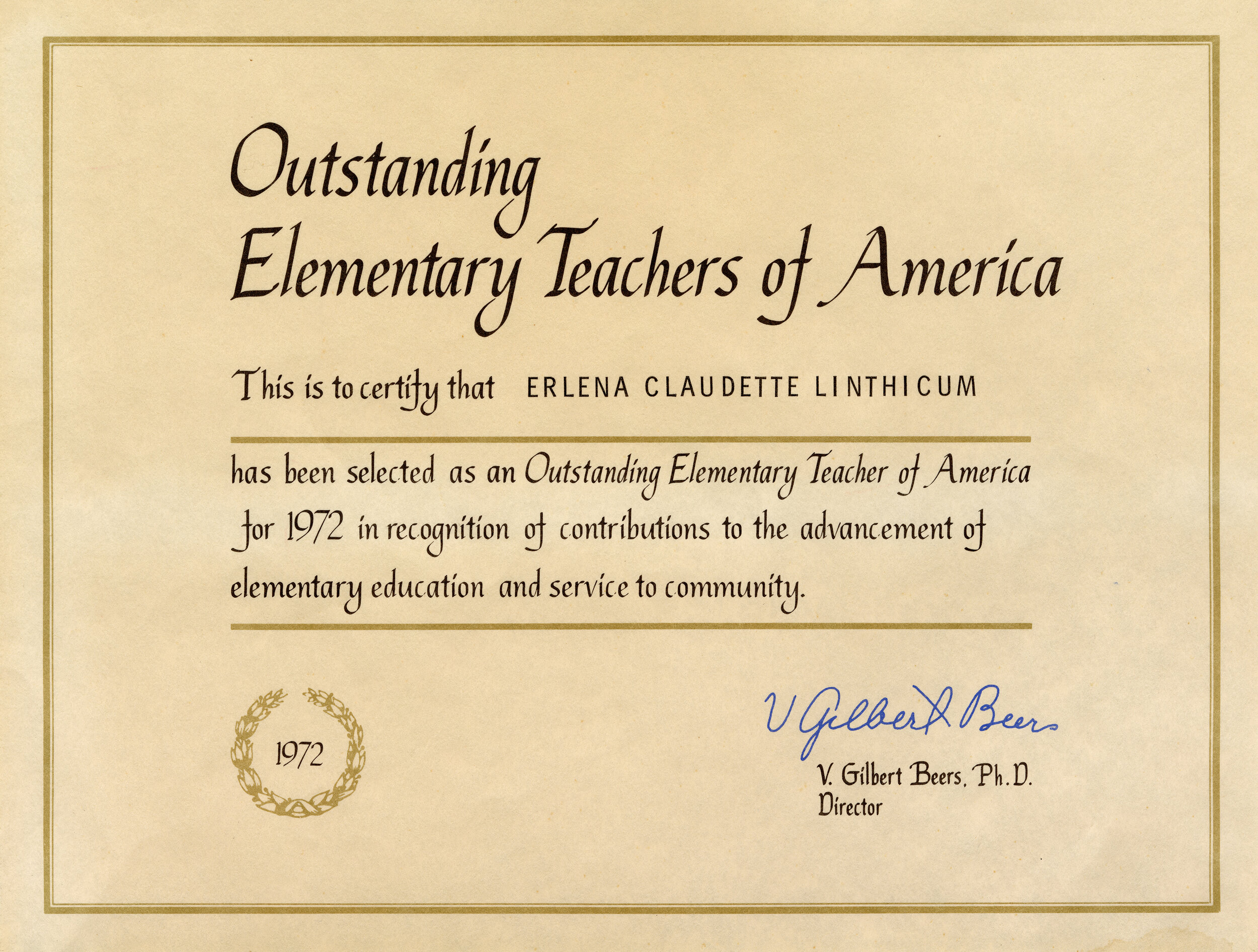“Listening to See First”: Reflections from an Oral History Interview with Ms. Erlena Brown Linthicum by Paris Mercier and Patricia Woodworth
In a family of fourteen, the Browns kept order through love and respect. Ms. Erlena Brown Linthicum of Georgetown, Maryland was born on the seventeenth of January, 1936 as the youngest of twelve children. She recounts her childhood as one filled with youthful recreation with her siblings and neighborhood children, but also one of careful attention to her parents’ teachings. Both of her parents modeled the love, respect, and work ethic that they wanted their children to reflect back out to the world. During our interview with Ms. Erlena, she explained to us that she and her siblings grew up with a clear appreciation for family bonds, community connections, and the significance of hard work. Additionally, religion played a powerful role in the family as they regularly attended and participated in church activities.
Ms. Brown was also an avid athlete. Throughout her childhood she constantly played ball games in her backyard, basketball at the back of her garage, and softball in the church field. Her love of athletics continued to grow during her days at Henry Highland Garnett High School as she joined the sports club while also playing on the softball, basketball, and volleyball teams. Ms. Erlena’s athletic pursuits stretched beyond Kent County too – she went on to play basketball at Maryland State Teachers College at Bowie and later joined an adult softball league while she was a professional teacher in Prince George’s County. The joy and camaraderie she found in sports was made very clear during our interview.
Each teaching that Ms. Erlena acquired from her parents manifested throughout her life, including on her journey through college. Her father helped her get started at Maryland State College but sadly died a year later. Ms. Erlena was forced to put a pause on her education and returned to Kent County because she lacked the finances to continue. Undeterred, and advised by her mother to “keep the faith,” she got a job at Vita Foods – a seafood processing plant in downtown Chestertown – and saved her money for three years before enrolling at Bowie State for a degree in elementary education. Ms. Erlena’s story of perseverance stands as a testimony to the strength and power it took to get through college even when it seemed that all odds were stacked up against her.


After graduation, she succeeded in completing an inspiring 55-year teaching career during which she was twice awarded Outstanding Teacher in Prince George’s County along with a “Who’s Who of America’s Best Teachers” Award. In retirement, she has continued to mentor young people of all ages. The life lessons of love, respect, and hard work are now being passed down to four of her nieces and a nephew that she has taken under her wing. As a testament of her superb guidance, her nephew Nivek Johnson not only returned to and graduated from college but also now teaches in Montgomery County and serves as an elected school board official in Kent County. When asked how mentoring others has impacted her life, she responded with humility, speaking to the accumulated knowledge she has received and passed on from others.
The lessons taught to Ms. Erlena and her siblings also applied to understanding race during the Jim Crow era. During the interview, Ms. Erlena revealed to us that her parents never truly explained to them why as a Black family they were treated differently. Instead, the children were expected to “treat people how they want to be treated” no matter the person’s race. In one story, she told us about her experiences on the Tolchester ferry to Baltimore and how the lessons she learned that day continue to shape her thinking today.
Alongside all of her wonderful successes, Ms. Erlena explained that while she was growing up, her parents would teach her “to listen to see first.” This was a powerful statement for our oral history team to take in. It reminded us all that sometimes the things happening around us are hard to understand, but taking some time to think through the context can be revealing. The statement also suggests that sometimes peoples’ intentions are hard to see, but their words paint a very clear picture. In a time when evaluating the values of those you keep close is paramount, “listening to see first” is a lesson we will hold close to the heart.


